
NSC aims to, ".... Create liveable neighbourhoods .." and "... to help facilitate travel by sustainable means and reduce car dependency" encouraging " bus, rail, walking, wheeling, cycling, micro-mobility (e-bikes, e-cargo and eventually e-scooters)". Is this the start of North Somerset 15 minute neighbourhoods?
UPDATE 24APR23 BPC publish consultation response (PDF) only 300-400 people, out of 217K people in North Somerset, responded to the NSC consultation, i.e. 0.18% represent NSC's decision making, indicating that most people were unaware of the consultation. Is this result statistically significant? Is it enough to base policy NSC on?
UPDATE 14MAR23: Glastonbury Town Council meeting on 20 minute Neighbourhoods, the Absolute Zero Report from UK Fires and Timetable Roadmap (Adams fb) indicating the reality of 15 min Cities and Zero Emissions. (Also see FreeBathStreets)
- No planes out of U.K - all airports to close
- Zero Shipping
- Beef and lamb phased out (see Dutch Farmers Citizen Movement and BBC report on political win - PDF)
- No imports except by train
- No cars except electric or driverless.
- No gas boilers /cookers or traditional wood burners (Zero fossil fuels - e.g Bristol - PDF)
UPDATE 20FEB23: BOB response to NSC Active Travel Plan consultation. BPC response - when was this discussed and approved by Full Council, and how were the public consulted? Considering the 13FEB23 discussion below, this was minuted by BPC at the 13FEB23 meeting as:
"Members of the public - A resident asked why the North Somerset Active Travel Plan had not been advertised by the Parish Council and whether the Parish Council would be responding given the tight deadline." (i.e. consultation closed the following week, NO extraordinary public meeting was held, NO agreement by BPC for this submission was minnuted at the MAR23 BPC meeting?) it seems that ONLY 3-400 of 217K residents respond to the consultation, i.e. 0.18%
UPDATE 13FEB23:At their meeting on 13FEB23 Bleadon Parish Council decided NOT TO INFORM RESIDENTS nor to address this consultation, leaving it to some time in the future .... after the consultation date has passed, without Full Council or public awareness or discussion??? NB: each NSC action plan states, "we encourage you to discuss issues local to you with your Town or Parish Council and your Elected North Somerset Councillor for your ward area." BOB asked at the Full Council meeting, but BPC seemed disinterested in responding as Bleadon's Statutory Consultee? What is BPC's role, are councillors effective in representing residents? On asking the District Councillor present whether NSC would go the same way as Oxford, with restricted travel passes between neighbourhoods (see below), it was indicated that this would be for the new council to decide, after the upcoming elections.
| Consultation | Opens | Closes | Information | |
| 10:00 09 Jan 23 | 10:00 20 Feb 23 | "Active travel is the movement of people or goods using the physical activity of a person. The most popular forms are walking, wheeling, cycling, running and scooting" |
NSC want to hear from "... everybody: residents, businesses, community groups, schools, North Somerset councillors, Town and Parish Councils, and any other stakeholders in North Somerset.", so why wasn't this on any Bleadon Parish Council Agenda to inform residents of these plans and public consultation? (09JAN23, 30JAN23, 13FEB23)
GB News Overview of 15 Minute City Madness
Stated to be hurting communities, hurting small businesses, restricting personal freedom of movement and accusation of State overreach. With reference to parliamentary questions (PDF)
There are 7 North Somerset Council Active Travel Action Plans:
LIVEABLE NEIGHBOURHOODS Action Plan (PDF)
- "The overall aim of Liveable Neighbourhoods is to reduce inappropriate through traffic", who defines 'inappropriate'? Weston Central Liveable Neighbourhood Consultation response published 31JAN23
- NSC Challenges, "Funding ... Community buy-in – some residents and businesses may be opposed to change initially" Surely this should be community led in the first place?
- Is this a future Oxtord 15 Minute Neighbourhood approach - article OCT22 (PDF), Oxford Council Recommendations and Documentation. Also, Zones, Oxfordshire Council seem to want less than 100 passes per year - see sections 10 and 11 recommendations, "...clear that to effect modal shift it is necessary to rely more on ‘sticks’ to change behaviour than ‘carrots’...Recommendation 1: That the Council reviews the number of residential passes made available, with a view to pursuing greater traffic reduction through giving out fewer residential per-person traffic filter passes during the trial period than is currently proposed." (PDF)
- Also, Canterbury (PDF), Bath (PDF) and Norfolk (PDF)
- or Southend Council whose representative clearly stated "... SOUTHEND Council has ruled out ever signing up to a 15-minute city scheme which restricts residents’ ability to travel freely across the city" (PDF)
- How does this fit with the global C40 Cities (PDF) e.g. C40 vlog and Paris 15min City (PDF)?
- “Neighbourhoods are enhanced by reducing through traffic, providing quieter, cleaner and greener streets for people to live, work and play on. Everyday shorter trips are more attractive by active choices, such as walking, wheeling and cycling, with all addresses still being accessible by car if necessary” who defines what is ‘necessary’?
- "prioritise to enhance residential neighbourhoods to make them quieter ... make everyday transport choices by active ways like walking/wheeling and cycling more attractive"
- "The boundary of Liveable Neighbourhoods will be clearly defined ... low traffic environment... Inside Liveable Neighbourhoods vehicle speeds and volume will be low, and walking/wheeling and cycling will be the most convenient form of travel for short journeys."
20mph ACTION PLAN (PDF)
- “20mph along Purn Way, Coronation Road, Shiplate Road and adjacent residential roads… Concept only at present” Who has submitted these ‘concept’ ideas, as they do not appear to have gone through any BPC motion, discussion, resolution or resident consultation?
- NSC Challenges, "Funding ... Resources to develop and deliver schemes once they have been prioritised."
ACTIVE TRAVEL NETWORK Action Plan (PDF)
- "Our starting point is that all scheme proposals will be considered against our Place and Movement Framework".(Image of map) See also NSC 'Transport Behaviour Change' Action Plan 2023-30.
- "The first priority is for the re-allocation or re- purposing of Highway space to meet the needs of active travel."
- "Worle High Street - Reduce or remove through traffic to improve walking/ wheeling and cycling safety. This will encourage active travel to the High Street and to nearby schools. Improving the public realm will encourage people to spend time and money in a more attractive, cleaner and safer Worle High Street. Outline proposal'" This is just as likely to force businesses to close down due to lack of through traffic.
- Links to climate change and health, e.g. "Active travel is a great investment for the climate .... Physical inactivity costs the NHS up to £1 billion each year... to make as many journeys as possible by active travel." How do these plans fit with the current government "Consultation on draft legislation to support identity verification" due to end 01 Mar 2023?
- NSC Challenges, "Funding ... Competing demands for Highway space, and public acceptance that changes to how we use this are necessary. ,... Changes to political priorities, both locally and nationally."
FIRST AND LAST MILE (to public transport) Action Plan (PDF)
- NSC "approach to achieving a seamless network of inter-connected transport options within and between our towns and villages – joining the dots between transport choices such as bus, rail, walking, wheeling, cycling, micro-mobility (e-bikes, e-cargo and eventually e-scooters) to help increase bus and rail usage"
- reduce journeys by single occupancy vehicles to and from our towns and villages."
- "Reduce the need to travel by car wherever possible"
- "increase active travel and e-mobility exponentially"
- reducing dominance of private cars, such as congestion, carbon emissions, air quality and social exclusion. In Vienna when planning new developments, including mobility hubs, these have led to less parking provision being required,
- NSC Challenges, "Funding... Ensuring correct level of resource, early engagement with procurement, and ongoing effective work with private sector – to deliver our First and Last Mile programme"
- See links to various other initiatives being followed
RURAL LANES Action Plan (PDF)
- "build a network of ‘rural lanes’ with reduced through- traffic"
- “This supports safer journeys by active travel and those who need to drive for access to their homes/businesses” who defines ‘need’?
- How does fit with the previous residents Rural Lanes action group (blog)?
- "reducing vehicle speeds and inappropriate routing of through traffic in both rural and semi-rural communities, together with implementation of virtual footways" Who defines 'inappropriate'?
- NSC Challenges, "Funding ... Community buy-in – the suggested quiet lanes will rely on community support."
SAFER ACTIVE ROUTES TO SCHOOL Action Plan (PDF)
- "support and enable children and families to walk, scoot, wheel and cycle to school more often"
- "Continue to develop a programme of work to reduce the requirement for Home to School Transport for mainstream education,"
- "Any new developments should mitigate the need for providing Home to School Transport within the catchment area for a school"
- NSC Benefits, "Children who walk or cycle to school tend to be more attentive and achieve better results... we aim to raise the number of children travelling by active travel to 55% by 2025"
- NSC Challenges, "Funding ... Schools and the school community have to be onboard with proposals for them to be fully effective"
TRANSPORT BEHAVIOUR CHANGE Action Plan (PDF)
- “Active travel interventions and incentives support behaviour change”, What types of interventions? Who is asking for this ‘change’ of public behaviour and for what tangible purposes?
- "we will prioritise to promote and help enable the shifting of everyday transport choices to more active ways, such as walking, wheeling, and cycling"
- " we will target investment and transport behaviour change initiatives at our more deprived areas whenever possible, to help provide residents and businesses with safer, cheaper and more green options for everyday transport journeys."
- "North Somerset’s most deprived areas are in Weston-super-Mare as well as parts of Banwell, Clevedon, Portishead and Pill....Open, Fairer, Greener North Somerset Council Transport Behaviour Change Action Plan – Summary 2"
- "Travel planning and branding New Roots, New Routes (see branding in figure 2) is a travel information pack, tailored for new housing developments."
- "The Active Travel Champions scheme (see branding in figure 3) is to get more people walking or cycling to work through peer lead support. Our champions are empowered and supported to make positive changes within their organisations and change the behaviour of those around them... for all staff to use."
- NSC Challenges, "Funding... Community interventions often only available for new developments"
EXECUTIVE SUMMARY (PDF)
- "We want your ideas about active travel interventions you want in your area. Residents, businesses, visitors and other stakeholders – we encourage you to discuss issues local to you with your Town or Parish Council and your Elected North Somerset Councillor for your ward area". Like NSC Local Plans, councillors have not put this on their agenda before the consultation deadline of 20FEB23 - Agenda 16JAN, 30JAN, 13FEB?
- How do these plans fit with the current government "Consultation on draft legislation to support identity verification" due to end 01 Mar 2023, and National Planning Policy Framework (NPPF) Consultation (and noted changes) due to end 02 Mar 2023?
- “We will continue to seek out funding opportunities to boost our limited capability for planning, delivering and monitoring our active travel improvements and behaviour change initiatives with our communities” How will all these plans eventually be funded and maintained, more public taxes? Who is influencing these ‘necessary’ activities, ‘needs’, and ‘behaviour changes’?
North Somerset Council's Aims are:
- Deliver safe and frequent active travel to enable improved public health,
- Tackle the climate emergency (what is the evidence of a climate emergency, that these plans will resolve (info)?)
- Help residents address the cost of living crisis,
- Drive local economic development
- Create liveable neighbourhoods with our communities and through the planning system (how does this fit with govt planning changes regarding housing requirements? NSC DEC22 press release)
---
See also:
- Transport consultations and projects consultation page

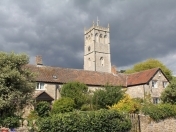

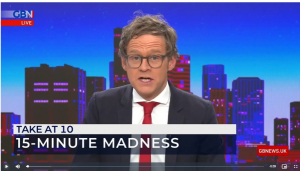

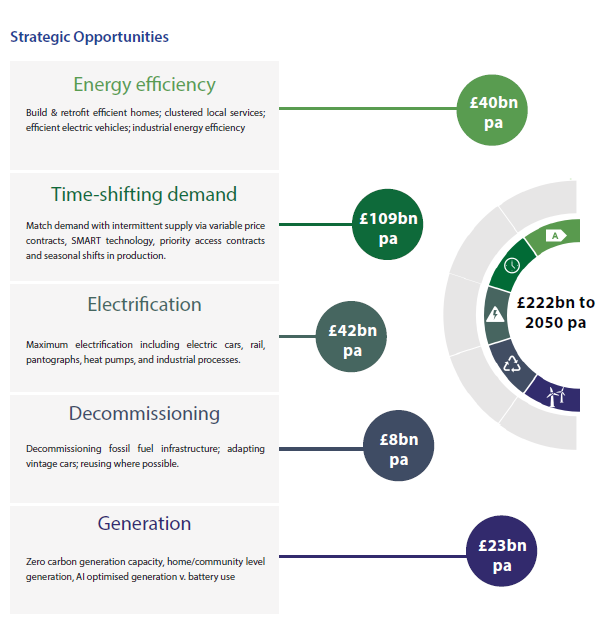
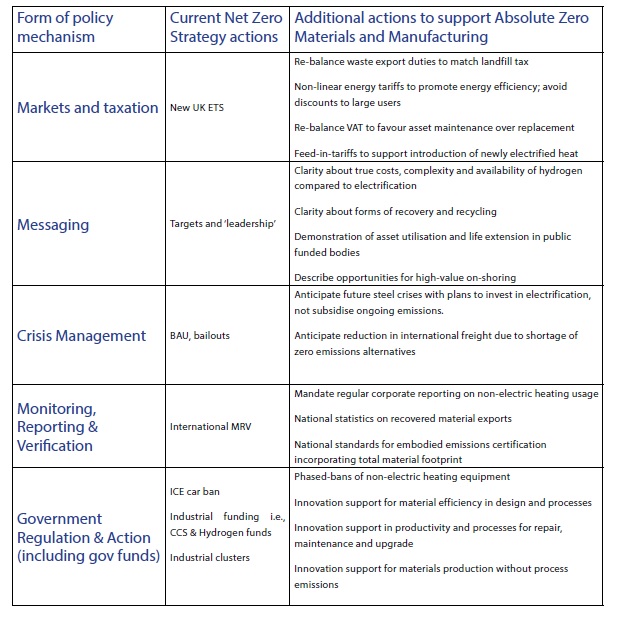
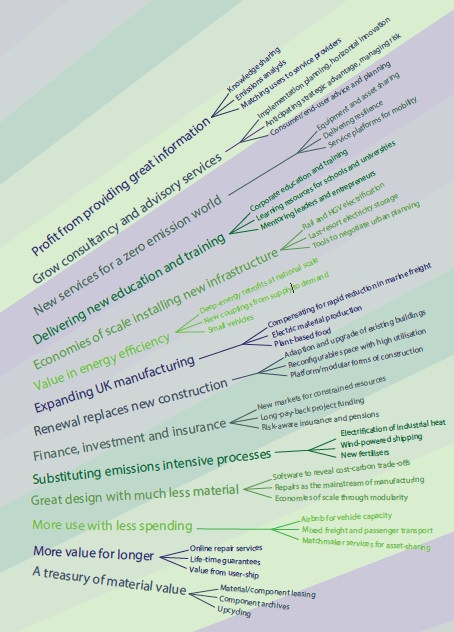

Make A Comment
Comments (0)